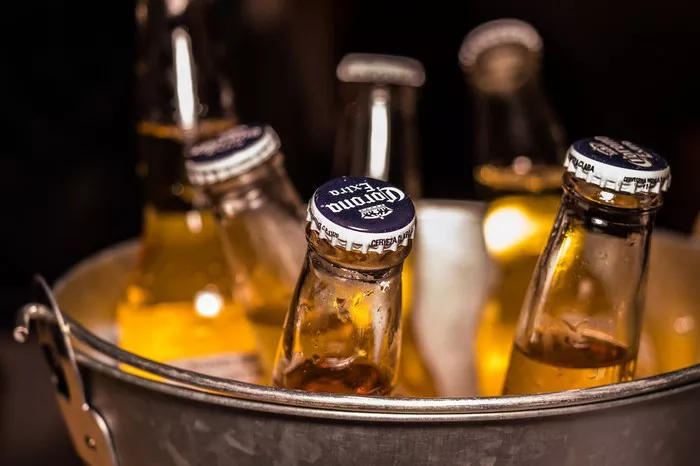Beer has been a beloved beverage for centuries, enjoyed by many for its rich flavors, diversity, and social appeal. In recent years, the demand for healthier alternatives has led to the rise of no carb or low-carb beers. Crafting these brews involves a meticulous process that aims to reduce or eliminate carbohydrates while preserving the beer’s taste and quality. Understanding how no carb beer is made involves delving into the intricate steps and innovative techniques employed by brewers.
Understanding the Brewing Process
To comprehend the creation of no carb beer, one must first understand the fundamental steps of brewing. Beer production generally involves four primary ingredients: water, malted barley, hops, and yeast. The process begins with malting, where barley grains are soaked, germinated, dried, and roasted to create malt. The malt is then mashed, mixed with hot water to activate enzymes that convert the grain’s starches into fermentable sugars. This sugar-rich liquid, known as wort, is boiled with hops for flavor and bitterness. After cooling, yeast is added for fermentation, converting sugars into alcohol and carbon dioxide.
Reducing Carbohydrates in Brewing
The challenge in producing no carb beer lies in limiting the amount of residual sugars that remain after fermentation. Brewers employ various techniques to achieve this goal. One approach involves using enzymes to break down complex sugars further, ensuring that yeast consumes more of the available sugars during fermentation. This results in a drier beer with fewer residual carbohydrates. Moreover, selecting grains with lower carbohydrate content or substituting traditional grains with alternatives such as rice, corn, or even soy can contribute to reducing overall carb levels in the final product.
Fermentation and Carb Reduction
Fermentation plays a crucial role in the production of no carb beer. Yeast consumes sugars in the wort, transforming them into alcohol and carbon dioxide. Brewers keen on reducing carbohydrates focus on maximizing yeast activity to consume as many sugars as possible. Special yeast strains with high attenuation rates are used, ensuring efficient fermentation and minimizing leftover sugars. Extended fermentation periods may also be employed to allow yeast ample time to metabolize more complex sugars, resulting in a beer with fewer residual carbohydrates.
The Impact of Ingredients and Brewing Techniques
Beyond yeast and fermentation, the choice of ingredients and brewing techniques significantly influences the carbohydrate content of beer. Brewers carefully select grains and adjuncts with lower carbohydrate profiles to replace traditional malted barley. Corn and rice, for instance, contain fewer complex carbohydrates and can be used to lighten the body of the beer while reducing its overall carbohydrate content. Additionally, mashing and sparging techniques are adjusted to extract fewer long-chain sugars, further aiding in carb reduction.
Utilizing Innovative Technology
Advancements in brewing technology have revolutionized the creation of low-carb and no carb beers. Filtration processes, such as reverse osmosis or centrifugation, enable brewers to remove sugars and other unwanted compounds more efficiently. These methods help achieve the desired carbohydrate reduction without compromising flavor or mouthfeel. Moreover, some breweries utilize vacuum distillation techniques to remove alcohol selectively, subsequently reducing carbohydrate content in the final product.
Precision in Brewing: Quality Control and Testing
Crafting no carb beer demands precision and rigorous quality control measures throughout the brewing process. Breweries employ sophisticated equipment to measure the sugar content at various stages, ensuring optimal fermentation and carbohydrate reduction. Gas chromatography and high-performance liquid chromatography (HPLC) are used to analyze and quantify the remaining carbohydrates accurately. These meticulous testing procedures allow brewers to fine-tune their processes and create consistent, low-carb brews.
See Also: is beer good for constipation
Art and Science: Balancing Flavor and Carbohydrate Reduction
Creating a no carb beer is not merely about reducing carbohydrates; it’s also about preserving flavor and maintaining the beer’s quality. Brewers face the challenge of finding the delicate balance between eliminating carbs and retaining the beer’s intended taste profile. Adjusting hop varieties and quantities, optimizing fermentation temperatures, and experimenting with adjuncts all contribute to achieving a flavorful brew with minimal carbohydrates.
The Rise of No Carb Beer in the Market
The increasing demand for healthier lifestyle choices has propelled the popularity of no carb beers. Consumers seeking to minimize their carbohydrate intake while still enjoying a refreshing brew have driven breweries to innovate and cater to this growing market segment. Major beer brands, as well as craft breweries, have responded by introducing a variety of low-carb and no carb options, expanding choices for health-conscious consumers.
Conclusion
The production of no carb beer involves a combination of scientific expertise, technological innovation, and brewing artistry. Brewers employ a range of methods, from selecting specific ingredients to utilizing advanced brewing techniques, all aimed at reducing the carbohydrate content while maintaining flavor and quality. As the demand for healthier beverage options continues to grow, the evolution and refinement of the process behind crafting no carb beer will likely persist, offering consumers a broader selection of enjoyable, low-carb brews.


